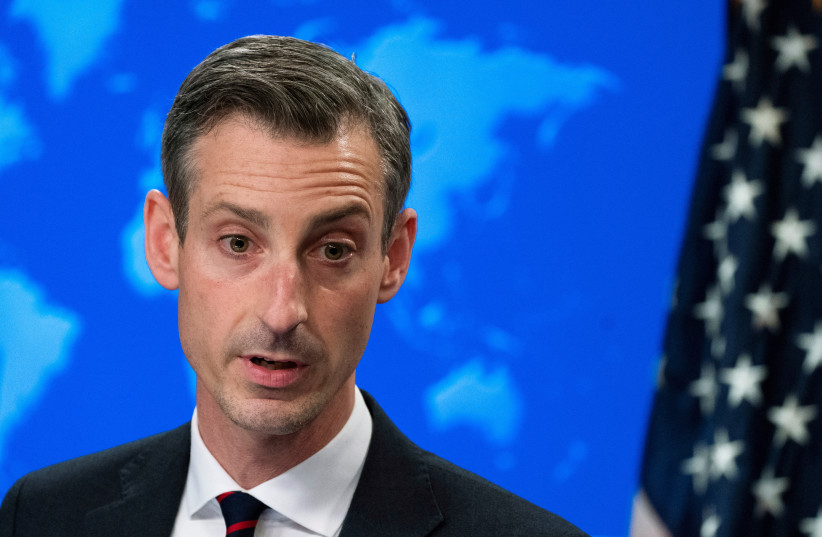Iran must respond to the International Atomic Energy Agency’s probe against it, US State Department spokesman Ned Price said in a statement that could complicate a quick conclusion of an Iran deal.
“Iran needs to answer the IAEA’s questions,” Price told reporters in Washington.
"Iran needs to answer the IAEA's questions."
US State Department spokesman Ned Price
“Our position [on this] is not going to change, regardless of where we express it, in the text of an understanding on a mutual return to full implementation of the Joint Comprehensive Plan of Action [the Iran deal], in public or elsewhere,” he added.
“We are unbending in support of the IAEA,” he said.

What's keeping the Iran nuclear deal from being revived?
Among the sticking points to reviving the agreement has been Tehran’s demand that the IAEA end its investigation into uranium traces found in places of undeclared nuclear activity.
He spoke as the European Union is awaiting the US response to Tehran's demands to clinch a revival of the 2015 deal which it submitted to the European Union already last week.
"There are still some outstanding issues that must be resolved," Price said, adding that there are "some gaps that must be bridged."
Price confirmed media reports that Iran had dropped its demand that the United States rescind its designation of the Islamic Revolutionary Guard Corps, which has once been a red line for the revival of the deal.
Internal consultations must take place before the US can respond to Iran's comments on the draft of the deal, he said.
"We will not take one day longer than necessary to provide our response," Price said, noting that the US would have accepted a text done in March, but Iran had rejected it.
Price dismissed criticism against a return to the deal, noting that since the Trump administration exited the deal in 2018, the Iranian threat had grown rather than diminished.
It is not possible to curb Iran's nuclear ambitions solely through economic sanctions, he said.
"The idea that a new strategy of so-called maximum pressure would somehow cow Iran into submission, not only in the nuclear realm but when it comes to its support for terror groups and their proxies, has been a demonstrable failure," Price said.
"The idea that a new strategy of so-called maximum pressure would somehow cow Iran into submission, not only in the nuclear realm but when it comes to its support for terror groups and their proxies, has been a demonstrable failure."
US State Department spokesman Ned Price
IAEA Director-General Rafael Mariano Grossi told CNN earlier in the day that his organization had no intention of ending its probe until Iran has answered questions to its satisfaction.
“Dropping probes is not something the IAEA does or will ever do,” Grossi said.
“So far, Iran has not given us the technically credible explanations that we need to explain the origin of many traces of uranium, the presence of equipment at places,” Grossi said.
Nuclear secrets? What is Iran hiding?
Traces of enriched uranium were found “in places that had not been declared, in places where nuclear activity was being conducted. So it’s very simple. Let us have an explanation. If there was nuclear material there, where is it now? If there was equipment there, where is it now?” Grossi said.
Israel is leaving nothing to chance and is campaigning to thwart the JCPOA, including holding conversations with heads of state among the six signatories to the agreement. Those are: the US, Russia, China, France, Germany and Great Britain.
Israel’s National Security Adviser Eyal Hulata was in Washington on Tuesday to urge US officials not to cement the deal, which Israel argued at its inception was not strong enough to prevent a nuclear Iran and which it believes has grown weaker due to proposed changes needed to revive it.
